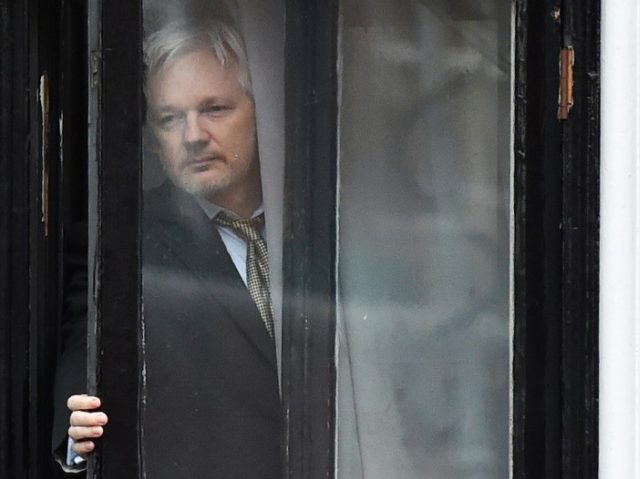WikiLeaks founder and Editor-in-Chief Julian Assange is in extremely poor health and requires immediate medical treatment, according to a lawyer for the transparency organization.
Australian attorney and WikiLeaks advisor Greg Barns says Assange has been denied medical treatment since being granted political asylum in Ecuador’s London embassy in 2012. “What is remarkable is that Julian remains so mentally alert and is able to function physically given the inevitable impact of six years detention without natural light or access to fresh air on a constant basis,” Barns told Australian technology news outlet iTWire. “However if there is not a resolution to his case — in other words, the UK guaranteeing that he will not be extradited to the US — the reality is Julian’s health will deteriorate to the point where his life is in serious danger.”
In October 2017, clinicians Brock Chisholm and Sondra Crosby examined Assange over a three day period and were alarmed at his condition. “It is unconscionable that Mr. Assange is in the position of having to decide between avoiding arrest and potentially suffering the health consequences, including death, and the need to call an ambulance if a life-threatening crisis such as a heart attack were to occur,” Crosby said in a statement. “Further, our assessment reveals that he has no access to sunlight, appropriate ventilation or outside space for over five and a half years. This has taken a considerable physical as well as psychological toll.”
Reports of Assange’s failing health follow intensifying speculation surrounding the WikiLeaks leader’s possible eviction from the embassy.
According to the Times UK:
Ministers and senior Foreign Office officials are locked in discussions over the fate of Assange, the founder and editor of WikiLeaks, who claimed political asylum from Ecuador in 2012 and who believes he will be extradited to the United States if he leaves the embassy in Knightsbridge, central London.
Sir Alan Duncan, the Foreign Office minister, is understood to be involved in the diplomatic effort, which comes weeks before a visit to the UK by Lenin Moreno, the new Ecuadorean president, who has called Assange a “hacker”, an “inherited problem” and a “stone in the shoe”.
On March 28, the Ecuadorian government announced Assange’s Internet assess and visitation privileges were revoked, in response to the WikiLeaks founder breaking “a written commitment made to the government at the end of 2017 not to issue messages that might interfere with other states.” Further, Ecuador contended Assange’s social media habits “put at risk the good relations [Ecuador] maintains with the United Kingdom, with the other states of the European Union, and with other nations.”
Last month, the Senate Intelligence Committee reportedly requested Assange testify before members as part of its investigation into Russian election interference during the 2016 presidential election. “As you are aware, the Senate Select Committee on Intelligence is conducting a bipartisan inquiry into Russia interference in the 2016 U.S. election,” the letter signed by Sens. Mark Warner (D-VA) and Richard Burr (R-NC) states. “As part of that inquiry, the Committee requests that you make yourself available for a closed-door interview with bipartisan Committee staff at a mutually agreeable time and location.”
Jennifer Robinson, a member of Assange’s legal team, said he was “seriously considering” appearing before lawmakers pending resolution of various security concerns. “The US Senate Select Committee request confirms their interest in hearing from Mr. Assange,” Robinson said in a statement. “The inquiry has asked for him to appear in person at a mutually agreeable time and place.
“We are seriously considering the offer but must ensure Mr. Assange’s protection is guaranteed,” the lawyer added.

COMMENTS
Please let us know if you're having issues with commenting.